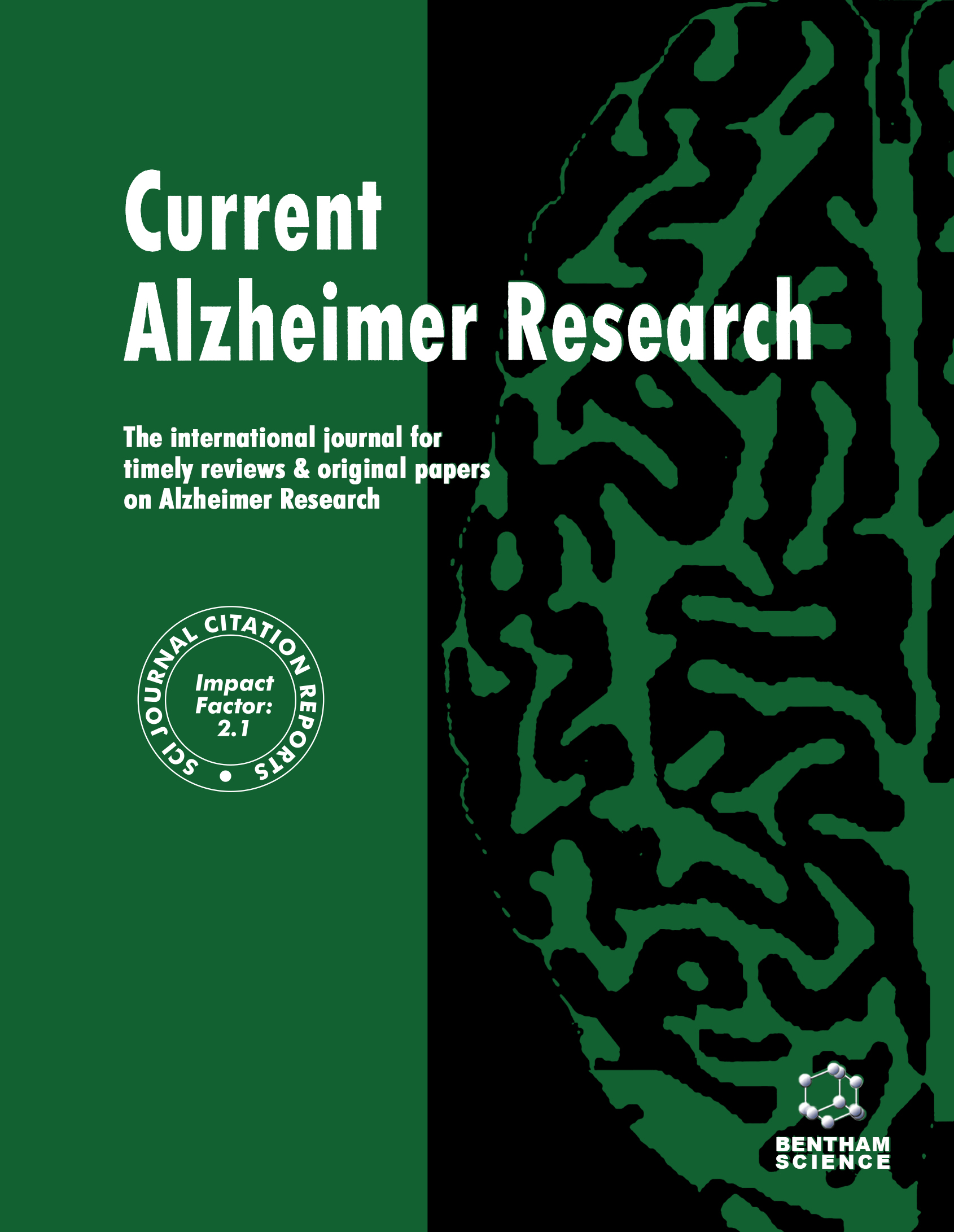-
oa Editorial [Hot Topic: Progressive and Unconventional Pharmacotherapeutic Approaches to Alzheimer's Disease Therapy (Guest Editors: Stuart Maudsley & Wayne Chadwick)]
- Source: Current Alzheimer Research, Volume 9, Issue 1, Jan 2012, p. 1 - 4
-
- 01 Jan 2012
Abstract
Alzheimer's disease (AD) represents one of the most important future therapeutic targets, both with regards to basic and translational research, due to the progressive aging of most westernized countries. Estimates in 2006 indicated that the worldwide prevalence of AD was nearing 27 million cases [1] and with greater and greater proportions of the world population living beyond 60 years of age, nearly 1 in 85 people worldwide may suffer from AD in the mid-part of this century. The potential economic, social and healthcare burden of a progressive disease of this prevalence clearly presents one of the most important future threats to worldwide health. Since AD currently has no effective therapeutic cure, and it gradually renders people incapable of tending to their own needs, long-term assistive caregiving essentially is the only treatment. The need for this long-term assisted (or ‘informal’) care of AD patients also means that the social and healthcare burden also affects collateral populations and may also detrimentally affect their standard of living. A recent European Union (EU) study was created to focus upon this specific aspect of the socioeconomic burden of AD. In the 2008 Eurocode Study [2], it was estimated that 7.23 million people suffered from dementia in 27 EU countries (EU27) in 2008. The total costs of illness for dementia disorders in the EU27 was estimated to be 160 billion Euros, of which more than half was attributed to the costs of informal healthcare. Considering the tremendous future social and economic threat posed by the increasing prevalence of AD, there are worryingly few new therapeutic strategies to effectively tackle this disease [3]. Many lines of research have focused intently upon issues such as direct disease mechanisms, but have failed thus far to generate any significant therapeutic breakthroughs. Considering the profound prevalence of AD in westernized societies, the current AD pharmacopeia is significantly lacking. Four pharmacotherapeutics are currently approved by regulatory agencies such as the U.S. Food and Drug Administration and the European Medicines Agency to treat the cognitive manifestations of AD. Reinforcing the paucity of the range of available and effective AD therapies, three of these four compounds belong to the same drug class, i.e. acetylcholinesterase inhibitors (donepezil, galantamine, rivastigmine) while the other, memantine, is an N-methyl-D-aspartic acid (NMDA) receptor modulator. In contrast to this limited capacity to treat AD, a similarly prevalent disorder, i.e. hypertension, can be medicated by multiple forms of therapeutic comopounds including, diuretics (e.g. acetazolamide, amiloride), calcium channel blocking agents (e.g. amlodipine, diltiazem), angiotensin converting enzyme inhibitors (e.g. captopril, enalapril), angiotensin receptor II antagonists (e.g. losartan, valsartan), centrallyacting alpha adrenoceptor agonists (e.g. clonidine, doxazosin), catecholamine depleting agents (e.g. reserpine), beta adrenoceptor antagonists (e.g. atenolol, carvedilol) and up to eighteen different forms of combination therapeutics (e.g. amiloriode-hydrochlorothiazide, felodipine-elanapril). Therefore our range of AD therapies is seriously limited. In addition to this rather pessimistic observation, only donepezil is approved for treatment of advanced AD dementia [4]. Unfortunately the use of the anti-AD therapies in cases of mild cognitive impairment (MCI) has failed to demonstrate any significant efficacy in delaying of the onset of AD [5]. In addition to their rather limited therapeutic actions many of the currently approved AD therapies also cause physiological effects likely to reduce drug compliance, i.e. nausea, vomiting, bradycardia, decreased appetite, weight loss and increased gastric acid production and irritation. To combat this current lack of multiple efficacious anti-AD strategies, over four hundred different pharmaceutical agents are currently under investigation around the world, with nearly one hundred of these nearing the later stages of clinical review [6]. The areas of research occupied by these agents currently in development include, agents that reduce amyloid beta through vaccination processes, reduce oxidative stress via metal ion chelation or attenuate the long term inflammatory responses associated with AD [7-10].....


